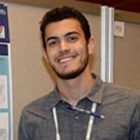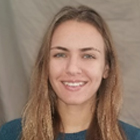Youth Plenary Session
The Power of Youth in Science and Conservation
Wednesday, April 24, 2019
8:30am – 10:00am
Moderator: Dr. Nick Aumen, Regional Science Advisor – South Florida, USGS, Davie, FL
“The world now has the largest generation of young people in history. I place great hope in their power to shape our future.”
-Ban Ki-moonformer United Nations Secretary-General
This Special Plenary consists of three segments featuring presentations by youth working to become scientists and stewards of the environment.
Be sure to arrive on time – you don't want to miss this session!

Part 1: Youth Making Ripples – The Intersection of Science and Film, through the Eyes of Our Youth
8:30am – 9:00am
Organizers:
Dr. Philip Gravinese, Post-Doctoral Research Fellow, Mote Marine Laboratory, Sarasota, FL
Youth Making Ripples is a global platform for ocean conservation, education, and discovery. Our mission is to raise awareness of critical marine issues and promote the protection of our oceans. For the last six years, our organization has created and hosted powerful and inspirational educational events around the world designed to engage the public in ocean conservation.
Youth Making Ripples Film Competition provides an opportunity for K-12 students (< 18 years of age) to use their creative talents and serve as a voice for our oceans. We encourage elementary, middle and high school students to create their own marine-related film on a topic of their interest.
This segment features presentations by three past award winners who will show their incredible short videos and share some remarks about their interest in the topic.
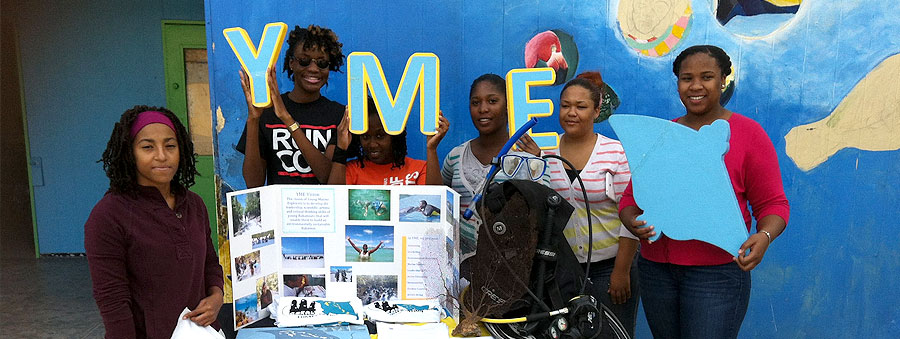
Part 2: Young Marine Explorers
9:00am – 9:30am
Organizer:
Dr. Kathleen Sullivan Sealey, University of Miami, College of Arts and Sciences, Coral Gables, FL
Young Marine Explorers - formerly Young Bahamian Marine Scientists (YBMS) - was founded by Nikita Shiel-Rolle during her undergraduate career at the University of Miami in 2008. The initial idea for this organization was to unite Bahamian youth interested in the Bahamian environment while providing new learning opportunities and developing their leadership skills. It was from these early ideas and countless conversations with environmental representatives throughout The Bahamas that the YME was founded.
YME has worked with over 700 students on six Bahamian Islands, inspiring academic excellence and fostering behavioral change that translates into sustainable lifestyle choices. The YME curriculum corresponds with learning objectives from the Ministry of Education matching their content with the necessary academic expectations creating a coherent curriculum that develops passionate, involved and engaged citizens.
This segment features a presentation by Nikita Shiel-Rolle and two Bahamian youth who are young marine explorers.

Part 3: Lightning Talks on Science Advancing Everglades Resilience and Sustainability
9:30am – 10:00am
Organizer:
Dr. Nick Aumen, Regional Science Advisor – South Florida, USGS, Davie, FL
GEER strives to foster the professional development of university students as they aspire to further their career and become future leaders in the environmental arena. Three undergraduate students representing some of the best and brightest from Florida International University, Florida Atlantic University and the University of Florida will each give a five-minute lightning talk followed by a facilitated Q&A session with the audience.
Lightning Talks
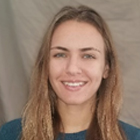
"Seasonal Abundance and Spatial Distribution of Blacktip Sharks (Carcharhinus limbatus) in Southeast Florida"
Jordan M. Waldron
Florida Atlantic University, Boca Raton, FL
As upper trophic level predators, blacktip sharks play a critical role in maintaining a healthy, balanced ecosystem in southeast Florida’s coastal waters. Studying blacktip shark abundance, distribution and driving factors for their seasonal migration to southeast Florida has indicated a strong correlation between water temperature and shark abundance. This suggests that warming oceans might shift the southern terminus of the migration towards higher latitudes, causing ecological imbalances along the United States Eastern seaboard.
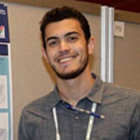
"How Fire and Water Availability Drive Changes in Phosphorus Cycling and Vegetation Composition"
Marco Fernandez
Florida International University, Miami, FL
Fire is a critical driver of phosphorus (P) cycling and ecosystem development, especially in seasonally inundated, intermittent wetlands. This presentation shows how variation in hydroperiod and fire frequency affect ecosystem biogeochemistry and how wetland plants and soils differentially utilize available P.

"Understanding Native Species’ Resilience to Invasives in the Greater Everglades Ecosystem"
Elizabeth Garcia
University of Florida, Gainesville, FL
This presentation will focus on how information on food webs contributes to the understanding of native species’ resilience to invasive species in the Greater Everglades Ecosystem.
